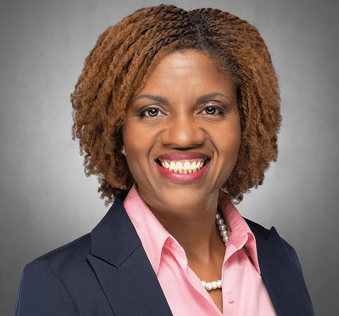
Close
result
what the participants said
Diversity of thought
CEO of the Chief of Staff Association
That was one of the real benefits of the programme – having that diversity of thought and the different organisations that were represented.
I feel that the chief of staff position is really my sweet spot – what I like to do and what I feel I'm good at. And I am committed to investing in this capability because it's something that I will continue with for the rest of my career. So I joined the Oxford programme determined to be a sponge, to absorb as much information as possible that could be useful in my profession.
Having supported four different leaders since I first became a chief of staff in 2018, I have a sense of how very varied the role can be and how much it is principal-dependent. So the sessions that reinforced those two key characteristics really resonated with me.
The theatre games and role-plays emphasised the importance of matching your principal in energy and status. It was something that I suppose I was naturally trying to do, but without properly articulating it to myself. That was an emotional day for me because realising what was needed and practising it really took me out of my comfort zone, which to be honest I needed to do.
I also found that Jonathan Trevor’s overview of strategic alignment really helped solidify and remove some of the ambiguity of the role. The chief of staff role may look different depending on the organisation you're in, but we all should be grounded in really helping the team through that strategic planning process and strategy execution.
So when I returned to the organisation after the programme I immediately made some changes to reflect my new knowledge and experience. My principal, for example, is what you’d call a ‘larger than life’ personality – in the terminology of the actors on the programme, he’s a ten; while on a regular day I would say that I’m a four or five. I've found that I've had to be like an eight or nine when I'm around my principal, just so that his personality doesn't overpower me and make me forget to say what I need to say! It does take a lot of energy, but as I have been altering my posture and energy more intentionally, it is something that I've found has been effective in me doing my job.
I was also able to bring Jonathan’s strategic alignment planning process to a group that had done nothing like it before during an off-site that I set up as soon as I got back. The other thing about that off-site was that I did something suggested to me by one of the other participants on the programme. In my previous role I would always be the facilitator in these kinds of meetings, and I got the feeling that some of my peers did not see me as a peer. I brought this up as a problem during the programme and someone advised me to get other people to act as facilitators, leaving me to be a participant and clearly part of the leadership team.
That was one of the real benefits of the programme – having that diversity of thought and the different organisations that were represented. People just came at problems from different angles and were able to offer some really insightful suggestions. We had some really targeted conversations about workload prioritisation, but also some good tips and ideas on how to approach that sort of conversation with your principal. It’s sort of practical advice that you can only get from someone who’s done the same job and experienced the same challenges.
Author Bio
Vinessa Pearson
Executive Chief of Staff, Bristol Myers Squibb
Vinessa Pearson is currently the Executive Director, Global Policy Strategy & Capabilities and she is the Chief of Staff to the SVP of Global Policy, Advocacy, & Government Affairs at Bristol Myers Squibb.
She’s responsible for leading the global proactive policy strategies, policy research, global stakeholder mapping capabilities, strategic planning process, operating rhythm, decision making, meeting model design and execution, extended leadership team engagement, and team trust building, and budget management.
Prior to this role, Vinessa worked as the Director, Strategy & Operations
within the Business Insights & Analytics organization at Bristol Myers Squibb. She focused on several key strategic initiatives including simplification and improvement of operating models, deployment of new capabilities, management of the global budget, the enhancements of the people strategy. Before joining BMS, Vinessa worked at Novartis in chief of staff and vendor management roles. Before joining Novartis, Vinessa worked at Johnson & Johnson and Merck & Co. During her time at J&J, Vinessa worked in the patient assistance foundation, pharmacovigilance, and quality / supply chain operations roles including procurement. Vinessa started her career at Merck as a process engineer and held roles in manufacturing operations, quality control, and procurement. She has experience across the entire value chain of the pharmaceutical industry.
Vinessa holds a BS in chemical engineering from Drexel University and a MS in Regulatory Affairs / Quality Assurance. She has a Clinical Development Certification from Temple University, and she has her PMP certification. Vinessa is passionate about running and has completed a half marathon and several 5Ks. She enjoys cooking and wine tasting, and she lives in Ambler, PA with her husband Jesse and they have 5 children.









